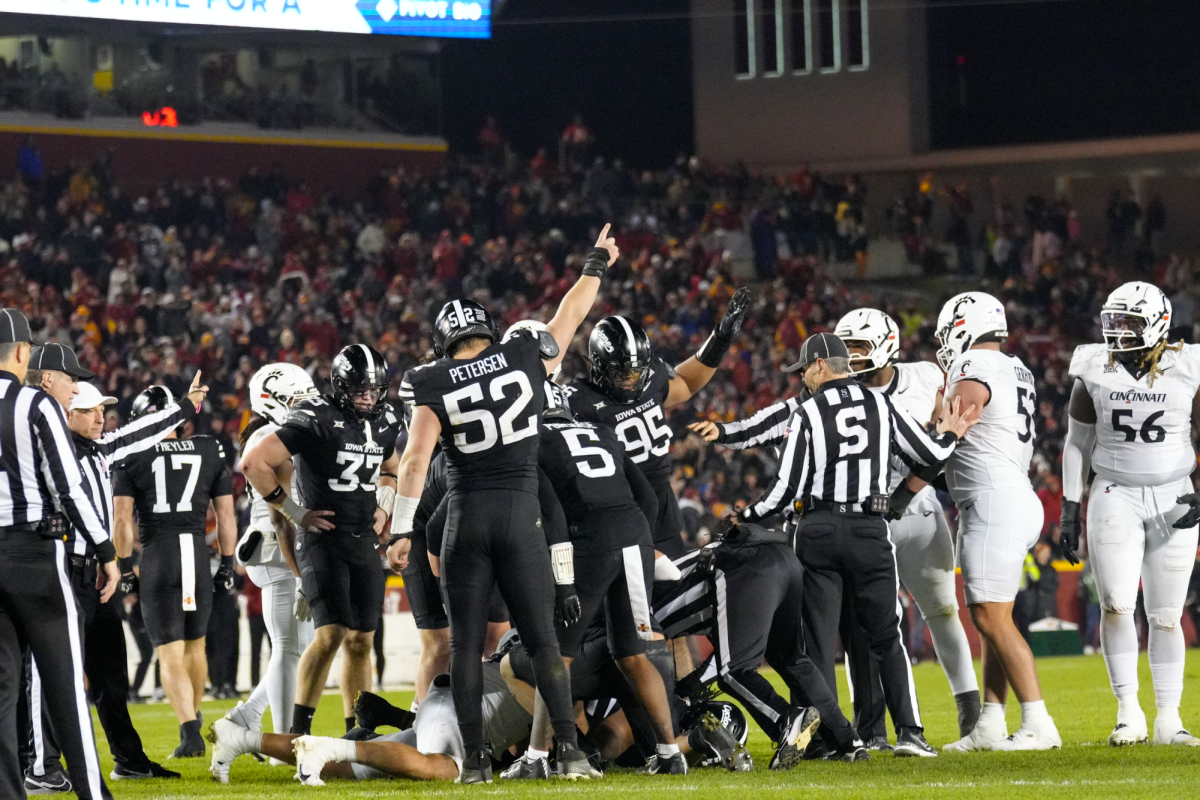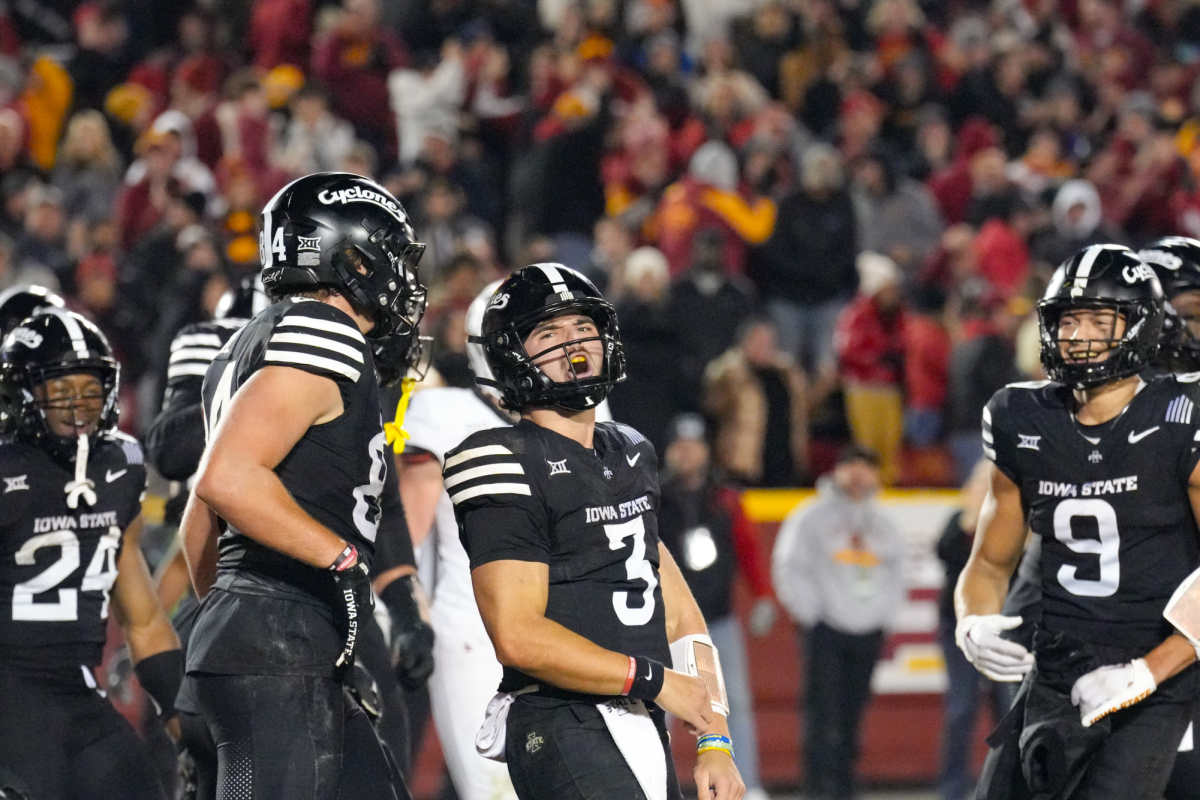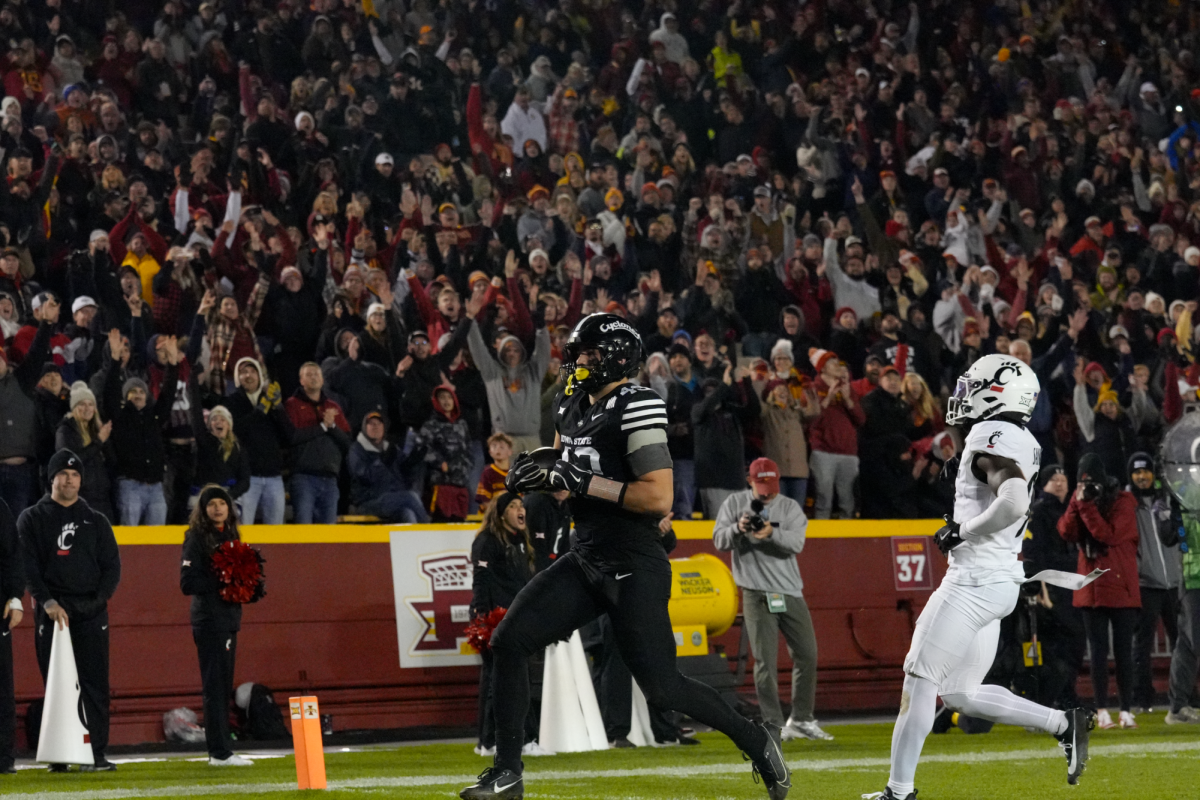Bright future for Iowa’s economy
April 9, 1997
The economy has a very positive future.
That seemed to be the outlook of Larry J. Wipf, a vice president for Norwest Corporation, who spoke Wednesday to a group of about 30 people in the Memorial Union.
The lecture, titled “Outlook for the Economy and Interest Rates: What Does That Mean for Iowa?” included a few predictions for the country’s economy based on a number of indicators and trends.
Wipf said the three major causes of a recession are external shocks, internal imbalances and policy mistakes. He said that none of these conditions exist in the current market, clearing the path for a prosperous economic growth.
Wipf discussed Federal Reserve Chairman Alan Greenspan’s “speed limit,” a dividing line between acceptable and possible inflationary economic growth.
Wipf said the official government figure of 2.25 percent is possibly pessimistic in view of increased domestic productivity. If the figure is too low, he said, the economy has the potential to “lose out” in the long term.
The economy is now well over that speed limit. The 1996 figures put growth at 3.7 percent, Wipf said, and he mentioned a number of contributing factors, such as soaring new single-family home sales, the continuing upward momentum of automobile/truck sales, and growing “non-auto” sales. In addition, real personal disposable income has shown a solid increase to nearly 4 percent and U.S. industries are producing at record levels with fewer workers, he said.
Wipf said the U.S. economy is not in a “boom/bust” cycle, and “an inflationary spiral is unlikely.” He predicted a few additional rate increases by the Federal Reserve before growth settles to a level just below the “speed limit.”
“The economy is not going to cool so much we have to worry about a recession any time soon,” Wipf said.
Despite this, Wipf predicted some turmoil in the financial market due to low unemployment rates and likely rate increases by the Federal Reserve. In the bond market, “yields are already up” and affecting the stock market, he said.
Wipf grew up in Minnesota and earned his bachelor’s degree in agricultural business administration and his master’s degree in agricultural economics, both from the University of Minnesota. He received his Ph.D. in economics from the University of Wisconsin.
Wipf has done research in U.S. farm policy, international trade and foreign impediments to U.S. agricultural exports.






